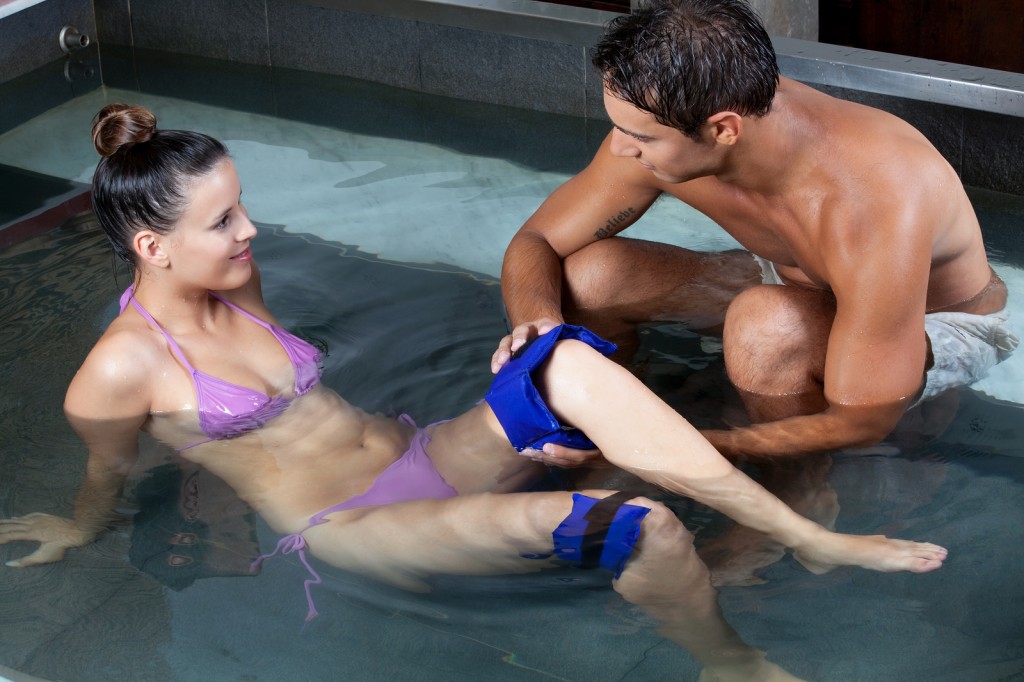
Aquatic therapy can be beneficial for many conditions and circumstances. It can improve heart and lung function, improve balance, help to re-train muscles after brain injuries, decrease pain and inflammation, and temporarily reduce symptoms of neurological conditions like Parkinson’s, among other things. It can also be quite calming, and therefore improve one’s psychological state, which, as most know, is also tied to physical well-being.
There are many different methods of aquatic therapy that can be tailored to what the individual needs of the patient are. Some of the more common methods are Ai Chi, Bad Ragaz Ring Method, Halliwick Concept, Watsu, and the Burdenko Method.
So what is it about water therapy that makes it useful for treating sports injuries, neurological conditions, post-operative rehabilitation, pain, edema, and more?
- Buoyancy. The buoyancy of water can allow people to exercise with less fear and danger of falling than they would experience on land. It also allows for exercise for those with injuries that make them unable to support their own weight, because the water itself is helping to support their body weight. The water reduces the effects of gravity on the body, supports weak muscles, and increases flexibility and range of motion, which can be freeing for those with otherwise limited movement.
- Hydrostatic Pressure. The force exerted by the water against the body reduces pain and edema, improves circulation, and reduces tactile sensory input (which is mostly what causes the calming effect). This pressure also helps to tone the muscles involved in respiration, which improves lung function.
- Viscosity. The viscosity of water provides resistance, which helps tone muscles, because the muscles have to work harder in
water to achieve the same movements that are easily achieved on land. It is also the viscosity that contributes to better balance and can dampen involuntary spastic movements and help to re-educate muscles after traumatic brain injuries because there is more time for the brain to process the placement of the muscles.
All of these factors combine to make aquatic therapy a good choice for a wide variety of injuries and conditions.
If you would like to know about our aquatic therapy options, or if you have other questions regarding our services, contact Aspire Hospital today.
